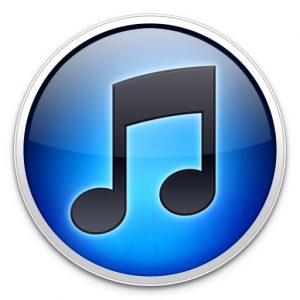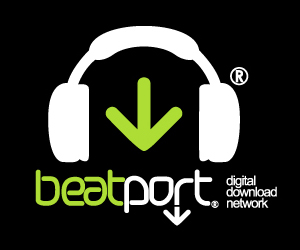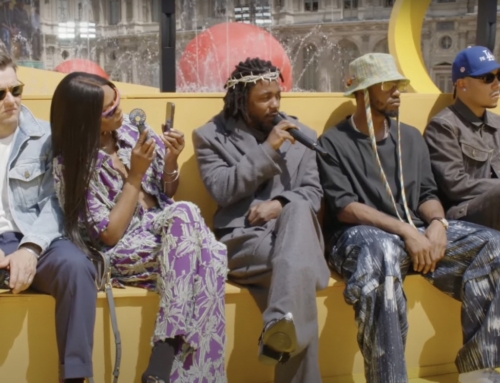 Much has been written about the music industry’s downfall, it’s failure to adapt and the onset of the digital music revolution. The subsequent rise of digital music retailers has, in many ways, democratized access to electronic music that never would have made it onto the shelves of major music retailers like Walmart, and Tower Records (remember them?) which, once upon a time, used to dominate the market. Digital music has done more than just change the way the industry operates and how music is played. It has transformed an outdated business model that operated more like checkers, into 3D chess-enhancing access to millions of new players, on all sides of the board.
Much has been written about the music industry’s downfall, it’s failure to adapt and the onset of the digital music revolution. The subsequent rise of digital music retailers has, in many ways, democratized access to electronic music that never would have made it onto the shelves of major music retailers like Walmart, and Tower Records (remember them?) which, once upon a time, used to dominate the market. Digital music has done more than just change the way the industry operates and how music is played. It has transformed an outdated business model that operated more like checkers, into 3D chess-enhancing access to millions of new players, on all sides of the board.
iTunes Changes the Rules of the Game
 To offer some sense of scope, Nick of the The Vly House writes “in the year 2000, retail values of record sales in the US measured $14 billion. By the time the iTunes Music Store had been released in 2003, sales fell to $11.8 billion – a 14 percent decrease. By 2007, the industry fell to $10.4 billion – a 37.7 percent decrease from 2000.” The combined affect of peer to peer (P2P) downloads and the release of iTunes, in 2003, forever changed the music market’s landscape.
To offer some sense of scope, Nick of the The Vly House writes “in the year 2000, retail values of record sales in the US measured $14 billion. By the time the iTunes Music Store had been released in 2003, sales fell to $11.8 billion – a 14 percent decrease. By 2007, the industry fell to $10.4 billion – a 37.7 percent decrease from 2000.” The combined affect of peer to peer (P2P) downloads and the release of iTunes, in 2003, forever changed the music market’s landscape.
In 2008 iTunes surpassed Walmart as the largest music distributor in the United States, consolidating the dominance of the industry’s digital turn. The rise of iTunes and Amazon.MP3, combined with the unbundling of music purchases -from paying a minimum of $10 for a single EP to now being able to pay as little as .99 for a single track impacted the medium and format of music’s distribution; its consumption and the payment of royalties to artists. However, most importantly for the future of electronic music (EDM), iTunes validated the market’s demand for buying music online, marking major shift toward digital distribution for others in the field to follow.
The Digital Marketplace for DJs
Just as the digital revolution began to impact the distribution of music, a parallel shift was occurring in EDM- a movement away from playing vinyl records to CD’s and, inevitably, directly off of laptop computers. Beatport was conceived just as this shift in music’s medium was taking place, placing it advantageously at the nexus of EDM’s simultaneous transformation.
After a failed attempt to partner up with iTunes, Beatport co-founders Eloy Lopez, Jonas Tempel and Brad Roulier decided to establish Beatport as a digital music resource that catered specifically to the professional DJ community. This makes Beatport the first of its kind. Founded in their hometown of Denver, it wasn’t until an office was established in Berlin -at the dawn of its rise as electronic music’s epicenter-, which catalyzed the underground’s embrace of Beatport as the go to site for track purchases. According to Tempel “DJs need new music because they play every week, it’s their job… they want a resource where people are supplying them with content on a regular basis.”
 Beatport’s rise has facilitated an unprecedented number of labels into the fore; connecting the producers they take under their wing, directly with the DJ’s who play their music. Its success has also helped pave the way for a number of competitors, namely Juno and Traxsource, among others.
Beatport’s rise has facilitated an unprecedented number of labels into the fore; connecting the producers they take under their wing, directly with the DJ’s who play their music. Its success has also helped pave the way for a number of competitors, namely Juno and Traxsource, among others.
However, trailblazers in the industry as they are, Beatport has also received considerable flack for booting labels it doesn’t deem profitable from their distribution platform. While Tempel states that he sees “independent music (as) the soul of the music industry”, Beatport announced, to much controversy, that they were slimming down the selection of labels by imposing a quarterly sales quota in order to continue participating in the platform, shutting a substantial number of underground labels out of the game, in 2008 and again in 2012.
When bars for entering the market get increasingly harder for underground labels –and their artists- to reach, what is to be done? As always, the market provides an answer, which in this case came in the form of netlabels, which further broadened the playing field.
Music for the Masses
Similar to traditional labels, netlabels carry all the same responsibilities, from the selection of artistic talent to promotion, to spread the word of their work. Netlabels, however, provide access to their work -for free- via download. The idea is the total democratization of music, with the goal of disseminating the work of producers, to an audience who haven’t heard of them before. By making music free, you begin to alter the musical environment within the genre of music you release, bringing new players into the game that are free of the constraints of the music industry’s rampant commercialism.
One such label is t he Moscow based Music Kollektiv, whose mandate is based in “…choosing to create and share in a collective, rather than a commercial fashion. This empowers our artists with a complete freedom of expression, and in this absence of commercial trappings our music can blossom.” Cultivating talent that is unafraid to experiment and able to remain uncompromising true to their vision, the proliferation of music, digitally, has resulted not only in major shifts in how the music industry operates and how music is accessed- it has helped to foster a new generation of talent free from the shackles of corporate expectation, making them freer to fulfill the full range and extent of their artistic vision.





